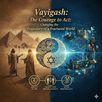This Yom Kippur: Don’t Forget the Small Print!
- Rabbi Yosef Vogel

- Sep 18, 2018
- 3 min read
Did you ever tick the box “I have read and understood the terms and conditions” without looking and live to regret it? Unfortunately many of us do.
Perhaps the greatest misconception about religion is that one can have a healthy relationship with G-d even though one does not have a good relationship with man.
Great Jewish leaders through the ages sought to rectify this profound misunderstanding. Two sages stand out. Hillel the Elder (110 BCE–10 CE) and the Baal Shem Tov (1698-1760).
It was Hillel who coined perhaps one of the most insightful thoughts in Talmudic literature. In response to the would be convert who sought to understand Judaism whilst standing on one foot, he responded: “Don't do unto others what you don't want done to yourself. This is the entire Torah. The rest is commentary".
It could be said that the Baal Shem Tov’s entire raison d'être was to redress this fundamental misalignment. The magical stories which are legendary, the inspirational anecdotes and revolutionary teachings - which have infused Jewish life with new vigour until this very day - are all permeated with the central belief that the love of G-d and the love of the Jew are one and the same. One can’t have one with out the other.
As Jews we continue to believe in the unique power of the day of Yom Kippur and in its ability to cleanse and heal. At the same time we are all carrying huge loads of emotional baggage. Just like the tip of the iceberg we are only aware of what we can see above the surface. We can’t begin to imagine what lies beneath.
The human heart has a finite capacity in harbouring emotions. The more we allow our hearts to be filled with all these negative feelings the less space we have for allow for healthy emotions.
How often do we reflect about what’s going on in our hearts? Do we have the courage to admit to ourselves how we really feel? Do we harbour any grudges towards anyone? Are we envious of our friends or siblings? Do we allow hate to fester in our hearts?
On Yom Kippur we ask our Father in heaven to forgive us, his children here on earth. We seek His compassion and kindness to pardon us even if we are undeserving. We do so by asking G-d to behave towards us in the same way a father would behave towards his children.
The good news is that G-d is more then happy to oblige. Like a true Father who loves His children G-d wants nothing more then to reconcile with us.
However there is one important stipulation: Our gaining forgiveness from G-d, is commensurate to our forgiveness of our fellow man. The small print.
A story is told in the Talmud of the students of the Talmudic sage, Rabbi Nehunya ben HaKanah who once asked him to what he attributed his longevity. He responded: “I never allowed the resentment caused by my fellow’s curse to go up with me upon my bed”. This great sage never bore a grudge. He slept well at night. He lived a long and happy life.
Practical Application
As we prepare to meet our Father on this Holy Day of Yom Kippur:
Let us resolve to begin the journey of purifying our hearts from all its toxic waste. We would feel much cleaner.
Let us rid our hearts from any resentment we have towards others. We would be much happier.
Let us quit being angry. Its poison.
Let us resolve to forgive anyone who has angered us or sinned against us whether accidentally or intentionally. And may we pray - as our forefather Abraham once did- that no one be punished on our account.
By doing so our hearts will be cleansed from all toxic energy. This frees up space for positive energy. This will no doubt attract huge blessings for a life filled with health, love and kindness from our father in heaven and from our fellow man.







Comments